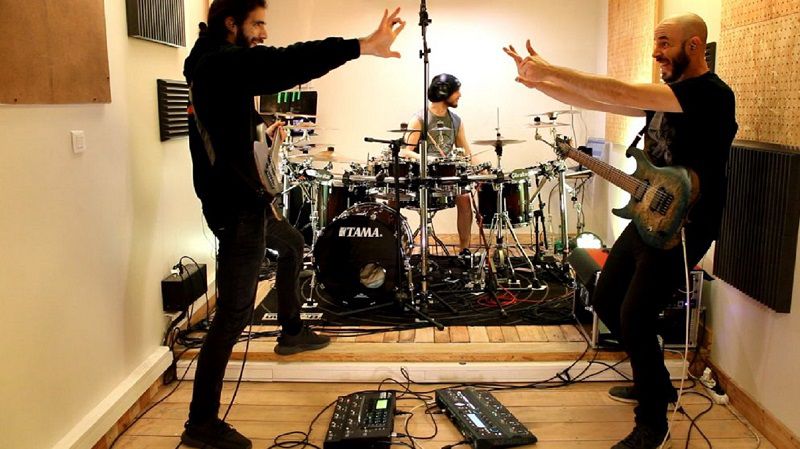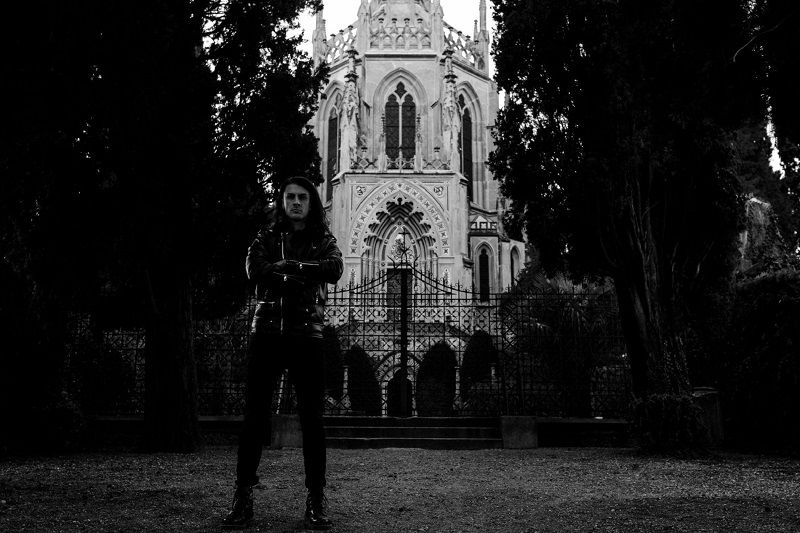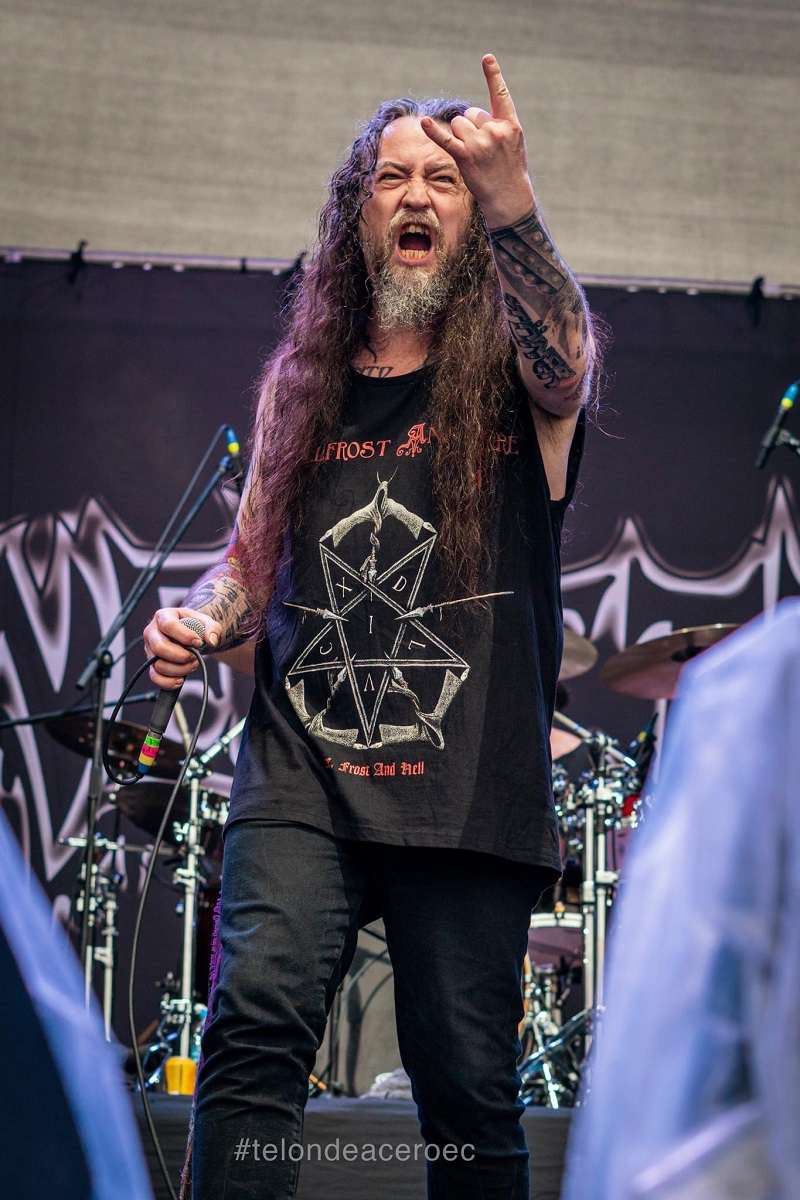MaelstroM Interview
10 min read
‘Gods’ Arise from the New York Underground
MaelstroM emerges with a proper and epic metal debut
By Justin Smulison
Make all the Billy Joel jokes you want, but in Long Island, New York in the late 1980s, there was a passionate surge of musicians and fans that were pushing the boundaries of metal.
Despite their hair, they were not glam and had a firm grasp on the underground thrash and metal scene, performing for rabid, packed audiences. Their off-stage antics were the perfect supplement to their onstage ferocity. They weren’t just out for glory or groupies like many mainstream metal musicians were — they were out for blood and sweat. MaelstroM was a group who emerged from the underground metal scene — and they could walk the line between thrash, speed and traditional metal. They had released some recordings, like their eponymous demo, that became underground favorites and generated major label interest. Sadly, MaelstroM was long considered one of the many casualties of the fade of the scene in the early 1990s.
But thanks to lifelong friendships, a relentless creative desire and a “we bleed metal” philosophy, MaelstroM has reemerged to finish what they started — and in this case it’s their first LP. Now available via independent release, MaelstroM’s long-awaited Of Gods And Men delivers 69 minutes of what they call “cinematic metal.” Check out the lyric video for first single “Army From Ash” to experience the subgenre-bending headbanger.
This battle of good versus evil is also the culmination of a lifelong journey for lead vocalist Gary Vosganian, who spoke with Blessed Altar Zine about past successes, setbacks and his surprisingly somewhat-optimistic outlook on the future of metal.
For those who were part of the metal club scene of the late 1980s, this should be a merry mosh down memory lane. For those who weren’t there — and let’s face it, there are many more in that category – enjoy this glimpse into a brief period where thrash was on the cusp of widespread domination.
Read closely enough and you might see how Vosganian even inadvertently provides a tangible and idealistic blueprint for how to do it again.
An Interview With Gary Vosganian Of MaelstroM
Blessed Altar Zine: The metal community has taken pride in its local and underground communities and scenes. Gary, give us a sense of what it was like for you and MaelstroM in the late 1980s. What were your relationships like with bands, promoters, fans and club owners in New York and Long Island?
Gary Vosganian: Extremely close friendships developed within and between bands that were around in 88’ and 89’ have lasted to this very day. MaelstroM bassist Jonny Modell was great friends with Brett Clarin and Mike Hymson from Sorrow. We’re all still friends today.
Stephen Flam from Winter and MaelstroM guitarist Joey Lodes have definitely re-bonded over the fact that they both suffer from severe tinnitus. A few years ago when Stephen embarked on his Goden project, Beyond Darkness, he recruited Joey to lay down a few solos for the album. Really killer stuff.
Myself and Troy Norr from Cold Steel are definitely tight. He had me do some spoken lines on Cold Steel’s American Idle in 2013. We’re still great friends with To The Pain’s Steve Shaver and John Intag, and Joey played the solo to their song, “Rise Of The Demons.” I know Joey’s kept in contact with some of the Suffocation guys like Chris Richards over the years and obviously, we’re still very close with MaelstroM alumni Jonny Modell and Elliot Hoffman who are now killing it in Car Bomb. CB’s Mordial is a fantastic album.
As far as club owners we were very cool with the late great Gaspar at February’s / Hammer Hedz … I can still hear that high-pitched voice to this today. He really helped nurture a scene back then, he really took us in. Him and Frank Cariola at Sundance.
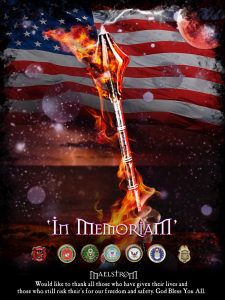
How old were you when you were actively performing in the late 1980s, when MaelstroM was coming up?
I was the oldest member, at 17, in the band Insurrection which was what we later renamed MaelstroM. Jonny Modell was the youngest at 14 but had (and still has) this super deep ready-for-radio voice. When I first spoke to him on the phone I thought it was some guy in his late 30s or 40s, but then he started to say his dad would have to drive him to the band audition. [laughing]… nd this 14-year old kid showed up. He was phenomenal, and still is.
In a way, are you glad that technology was limited at the time? For example, with less phones and no internet and more word of mouth, did it make the performances more intense?
Yes, people back then went to live shows and were actually immersed into the show, instead of
distracted by their phone. The tape trading underground was our internet in the late 1980s. Trading demos with amazing bands like Demolition Hammer, Ripping Corpse, Internal Bleeding, Suffocation, and dozens of others is how we all spread the word of mouth.
Fans from around the world would make their own metal “compilation tapes” featuring MaelstroM with other bands, dup ‘em up and spread them throughout their scene.
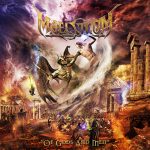
Locally, Joey and I would be up till 2 to 3 a.m. plastering Franklin Square, Valley Stream, Elmont, and West Hempstead with flyers all over polls leading up to shows at Feb’s / Hammer Hedz … you couldn’t drive in that area without being exposed to the MaelstroM brand. And we’d be doing this after a full day of school, working an after-school job, and then starting flyers at like 11 p.m. Definitely an exercise in perseverance, but if you wanted that recording time grand prize for drawing the most people, you have to earn it.
We were also renowned in the Long Island scene for having one of the largest and most organized mailing lists at the time, easily over 1,000 solid names and addresses. Even though stamps were only 22 cents then, we were broke kids and would encourage our fans to bring the envelopes back to the shows and we had a way of reusing the stamps [laughing]. Whatever it took, we did it. Other bands would beg us for access to that list back then. Things were just more tangible then, you would actually receive a show flyer and a letter from us, were able to hold an actual demo tape. People would tell us how they looked forward to our next “Mael”-er because we were always working on something new, introducing new merch, and the fans, they would feel a part of all that, and they were. They literally made it happen for us. Without them coming in droves to MaelstroM shows at Feb’s in 1989 we would never have been able to afford the recording of This Battle To Make History … which is still known throughout the underground today.

What styles of metal did you feel MaelstroM best fit with?
What gave MaelstroM our identity, we always felt, was while most New York “thrash” bands were influenced by the usual “Big 4” we were more heavily influenced by the European thrash scene, like Kreator, Coroner, Sabbat, Destruction, Celtic Frost, and Sodom, just to name a few. Even to this day, Joey and I have this saying: “WWKD – What Would Kreator Do?”
Obviously, there was a big hiatus(es) in your group’s activity. How much of a “we bleed metal” philosophy inspired you and the band to record this epic album?
Thanks so much for the compliment. It really does mean the world to us. I definitely bleed for the steel, no two ways about that.
There were several factors that led to Of Gods And Men sounding the way it sounds today. If this was recorded earlier and I have no doubt that it would have been a vastly inferior product. First off, we had the backbone and framework of all these songs going way back between 1988 to 1992. The ideas were there, the basis of the riffs were there, and the foundation of my conceptual story was there, but frankly … our songwriting chops weren’t there yet, Joe’s playing wasn’t as developed yet and his guitar tones were nowhere near as good. For me, I had yet to take a formal vocal lesson at that point. So all of these delays allowed us time to mature enough to look back at what we considered the really classic metal albums and songs that we grew up with and understand why those worked, what made them classic, and infuse that into what we already had as a framework.
A perfect example is “A Futile Crusade;” of all our songs that is probably the most similar to its original version on our second demo. But if you compare the two … everything that “Futile” was has now been enhanced for maximum impact. On the demo, I sang the intro just like any other part, now on the album it’s a call and response between an eerie, haunting choir and myself. The intro riff itself now has this ominous descending baseline throughout which it never had before, almost harkening to Jerry Goldsmith’s theme from “The Omen.” The march-like, more uplifting “William Tell Overture” riff that follows now modulates to much more dramatic chord changes. The faster “main riff” is now in an actual key and the kick drums behind that main riff were switched to a sextuplet pattern so it wasn’t a complete blur, and it also enhances the syllabic pulse of what I’m singing.
What were some other notable changes?
Another very important change is I don’t sing on the main riffs right out of the gate like I did on the demo. We now let the riffs breathe and establish themselves because there’s already a ton of stuff going on for the listener. A simple change like letting the riff cycle through a couple of times lets these riffs be their own “moment.” When it comes to the chorus, the lines “Each man blind, that all his time’s been puppeteered by two gods’ hands” are now sung melodically and within the chords that are changing underneath it. This was actually my very first attempt at more “melodic” vocals and we liked the result so much that Joe and I revisited each song and decided which parts would be sung melodic, which heavy, and eventually I developed a way to mix the two, to sing heavy yet within a key.
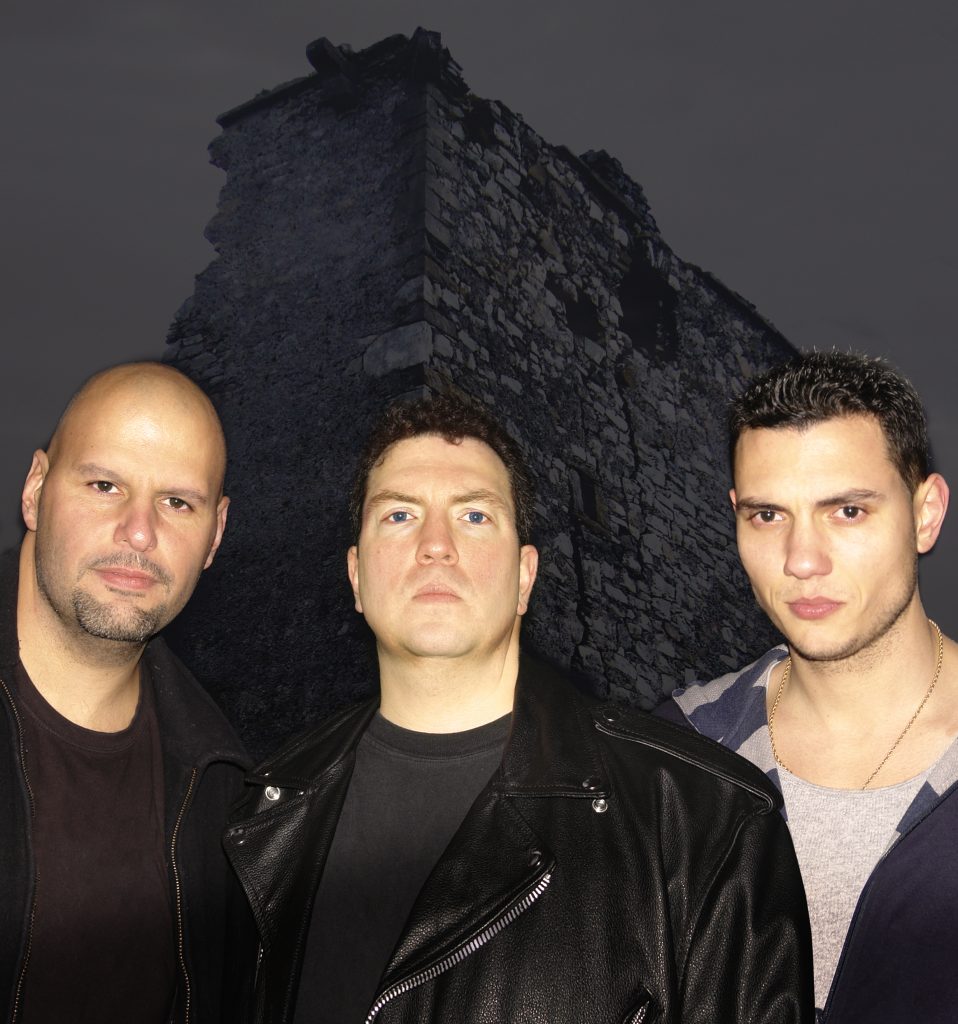
Who were some bands that you shared a stage with that have achieved success or notoriety and which are still active to this day? What special memories do you have of playing with those bands/musicians?
Obviously, Suffocation has taken their brand of brutal death metal to even more incredible and popular heights. I remember them playing their very first live show with us at Sundance. This was the early version with Frank Mullen on vocals, Josh Barohn on bass, Mike Smith drums, and Terrance Hobbs and Doug Cerrito on guitars. Guy Marchais (who later played guitar for Pyrexia and then returned to Suffocation) had just left the band. I remember Josh freaking out that his bass rig wasn’t working moments before they went on and Joey, Jonny and him troubleshooting everything under the sun just to find out he was running a crapped-out patch cable to his bass. Those were the days. They were brutal right from the get-go, and playing most of the stuff that ended up on their first, now classic demo, “Reincremated”.
I was psyched that Demolition Hammer, after their own 20+ year hiatus, decided to reform in 2016. “Crippling Velocity” is still, to this day, one of my favorite thrash tunes of all time.
Our former members Jonny and Elliot have been in Car Bomb now since 2000 … so already 20 years! Time really does fly. They have done extensive touring with the likes of Meshuggah, Animals As Leaders, and Periphery to name a few. I hope Joey’s ears are able to improve one day, because there’s a ton of touring and festivals MaelstroM needs to catch up with.
What are your tips for underground and rising metal bands today?
From a pragmatic sense, there is the obvious: Make sure your chops are good and the songs are well written and well recorded.
Once that is covered, never underestimate the power of a great PR agent, radio guy and social media expert. [Writer’s note — MaelstroM’s Facebook page has 138,000 likes. Though Vosganian estimates that about 95,000 are legitimate, that number is still staggering, considering the band that had never released a full-length album until May 2020.]
From an idealistic sense, this is a tricky question, because to simply say “follow your dreams” is not a complete answer. The only reason why we’re able to talk to you today about this album was because Joey and I were able to fully self-produce Of Gods And Men. It truly was a labor of love that started when we were just kids in high school, but we were able to make our dream a reality, 32 years later. We self-produced this album because we both had careers outside of music.
So it’s a double-edged sword. Without the Dream there’s really nothing to strive for, but without the funding it is very difficult to make your Dream come true. I think in the end that’s what MaelstroM represents, that it is never too late to follow your dreams, … and make sure you do whatever it takes to bring that dream to fruition.
Hopefully we inspire others who later in life have that unfulfilled dream, that feeling of “What If …,” and maybe our story inspires the completion of theirs.
For more about MaelstroM please visit:
**Please support the underground! It’s vital to the future of our genre.
#WeAreBlessedAltarZine
#TheZineSupportingTheUnderground

